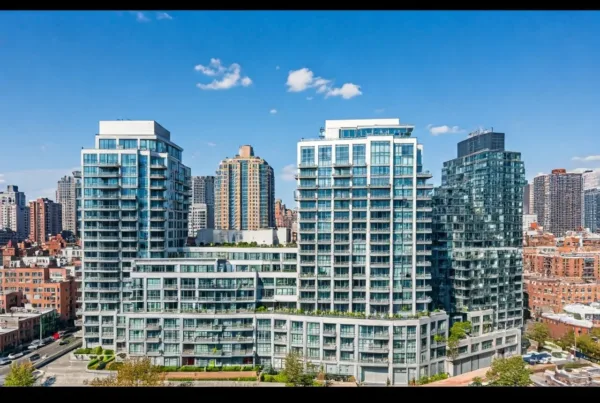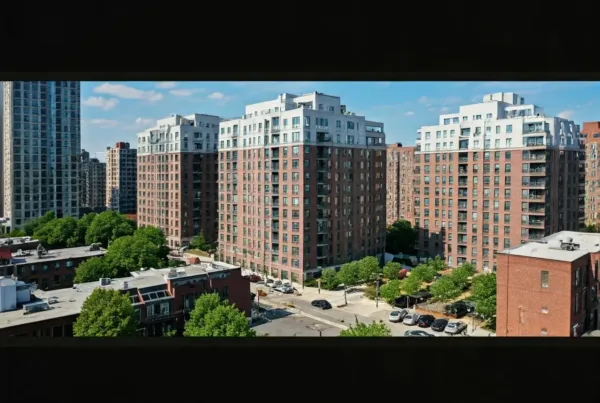Unlock the mystery behind NYC sponsor units: the secret to finding affordable housing in the Big Apple revealed here!
Table of Contents
Introduction to NYC Sponsor Units
In the bustling real estate market of New York City, there is a unique type of property known as NYC Sponsor Units. These units play a crucial role in the world of real estate transactions, offering opportunities that set them apart from traditional co-op units. Understanding what NYC Sponsor Units are and the significance of sponsors in real estate is essential for anyone looking to delve into the vibrant NYC housing market.
What Are NYC Sponsor Units?
NYC Sponsor Units are properties within co-op buildings that are owned by the original sponsor or developer of the building. These units are usually sold by the sponsor rather than by individual owners within the building. What makes sponsor units particularly appealing is that they often come with unique features and advantages compared to other units in the same building.
Who Are Sponsors in Real Estate?
In the realm of real estate, sponsors are individuals or companies who initiate and manage the development of a property. Sponsors typically hold a significant stake in the project and play a vital role in selling units within the building. When it comes to NYC sponsor units, sponsors are responsible for selling these properties directly to buyers without the need for board approval.
The Benefits of Buying NYC Sponsor Units
One of the fantastic benefits of buying an NYC sponsor unit is that you don’t need to go through the hassle of getting approval from a co-op board. This means you can move into your new home faster without having to wait for board meetings or worrying about being rejected.
Often Low Prices
Another great advantage of buying a sponsor unit is that they can sometimes be sold at lower prices compared to other units in the same building. This can be a huge cost-saving opportunity for those looking to own property in New York City.
The Process of Buying a Sponsor Unit
In the exciting world of real estate, buying a sponsor unit can be a fantastic opportunity. Let’s take a closer look at the simple steps involved in purchasing one of these unique units.
Finding a Sponsor Unit for Sale
When you’re ready to buy a sponsor unit, the first step is to find one that suits your needs. You can start by looking online at real estate websites, working with a real estate agent, or even checking out advertisements in your neighborhood.
Remember, sponsor units are typically sold by the sponsor, who is the original owner or developer of the building. This means you won’t have to go through the same approval process with a co-op board like you would for a regular unit.
Making an Offer
Once you’ve found a sponsor unit that you’re interested in, it’s time to make an offer. This involves negotiating with the seller on the price and any other terms of the sale.
Keep in mind that buying a sponsor unit can sometimes mean getting a good deal compared to other units in the building. Plus, you won’t have to wait for board approval, making the process quicker and easier.
So, whether you’re looking for your dream home or an investment property, buying a sponsor unit can be a smart move in the bustling real estate market of New York City.
No Board Approval
One key aspect that sets sponsor units apart from other units in NYC is the fact that you do not need board approval to purchase one. When you buy a sponsor unit, you bypass the sometimes lengthy and unpredictable process of gaining approval from a co-op board. This can save you time and eliminate potential hurdles that may arise during the approval process.
| Understanding NYC Sponsor Units |
|---|
|
Sponsor units in NYC refer to apartments in residential buildings that are owned by the original developer or sponsor of the building. These units are typically reserved for the sponsor and their affiliates and can have special rules and regulations attached to them. Key Points about Sponsor Units:
|
Who Can Live There?
Another distinction of sponsor units is the flexibility they offer in terms of who can live in them. Unlike traditional co-op units that may have strict rules about who can reside in the building, sponsor units often have more relaxed regulations. This can be advantageous for individuals and families who do not fit the typical co-op resident profile but still want to enjoy the benefits of co-op living.
Things to Consider When Buying a Sponsor Unit
When considering buying a sponsor unit in NYC, there are a few important factors to keep in mind to ensure a smooth and satisfactory purchase. Here are some key things to consider:
Condition of the Unit
One crucial aspect to consider when buying a sponsor unit is the condition of the unit itself. Some sponsor units may require repairs or renovations, and it’s essential to factor in these potential costs when making your decision. Before finalizing the purchase, it’s advisable to inspect the unit thoroughly or seek professional advice to assess any necessary repairs.
Monthly Maintenance Fees
Another important consideration when buying a sponsor unit is understanding the monthly maintenance fees associated with the property. These fees cover the costs of maintaining common areas, building amenities, and other shared expenses. It’s crucial to be aware of these fees and factor them into your budget to ensure that you can comfortably afford them in addition to your mortgage payments.
Summary
In this article, we delved into the world of NYC Sponsor Units and explored what makes them unique in the real estate market. We learned that sponsor units are special types of units managed by sponsors who play a crucial role in the real estate industry.
One of the main benefits of buying a sponsor unit is the convenience of not needing board approval. This can make the purchasing process smoother and faster compared to regular co-op units. Additionally, sponsor units are sometimes priced at lower rates, making them an attractive option for buyers looking for a good deal.
When considering buying a sponsor unit, it is important to keep in mind factors such as the condition of the unit and the monthly maintenance fees associated with it. Some sponsor units may require repairs or renovations, so it’s essential to assess the overall condition before making a decision.
To recap, buying a sponsor unit can offer a hassle-free experience with no need for board approval and potentially lower prices. Understanding the differences between sponsor units and regular co-op units can help buyers make informed decisions when navigating the real estate market.
Frequently Asked Questions (FAQs)
Do I Need Board Approval to Buy a Sponsor Unit?
One of the main benefits of buying a sponsor unit is that board approval is not required. Unlike traditional co-op units where the board has the final say in approving buyers, sponsor units bypass this step, making the purchase process faster and more straightforward. This can be especially appealing for buyers looking to avoid potential delays or uncertainty associated with board approvals.
Are Sponsor Units Cheaper?
Begin your search and start earning cash back!
While sponsor units can often be sold at lower prices compared to other units in the market, this isn’t always the case. The affordability of sponsor units can vary depending on factors such as the location of the unit, its condition, and current market conditions. It’s essential for buyers to conduct thorough research and comparison to determine if a sponsor unit offers a good value proposition. In some instances, sponsor units may indeed present a cost-effective opportunity for buyers seeking a deal.







